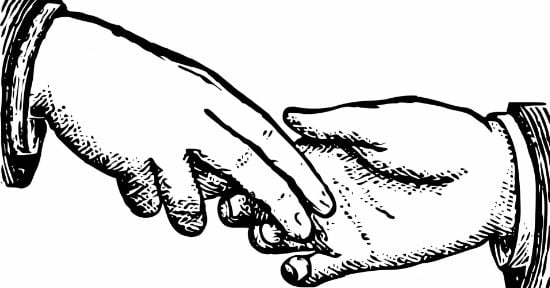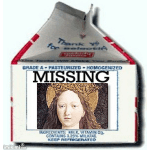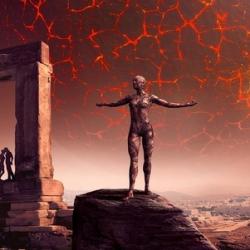“You’re certainly colorful today. Something for Easter?” said one of my many specialist physicians, referring to my vibrant tie-dyed blouse.
I looked at him blankly. Mostly, that was due to the earliness of the hour. I’m not exactly a morning person. Each morning is like a new coma awakening for me.
“You know, how they paint Easter eggs?” he helpfully elaborated.
I smiled and said, “Ah, I’m of Jewish heritage.”
It was a casual remark that most people wouldn’t have picked up on. I meant to explain why I wouldn’t be interested in dressing for Easter, but the way I phrased it told him something else about me.
“Meaning you don’t practice?” he asked.
I nodded. I would’ve elaborated, but my brain was too busy trying to remember my name.
“I am of Christian heritage, as you say.” You can probably tell from his pattern of speech that he’s not a native English speaker. He has some sort of foreign accent, but I’ve never asked him what his country of origin was.
I nodded again, flashing him a smile of mutual understanding. “Keith is one, too.”
Perhaps secularists need to develop a secret signal, a series of coded phrases perhaps or maybe a secret handshake, some way to let them know that they’re speaking with a fellow apostate.
It would an unreasonable comparison to liken this conversation to one that one that gays or lesbians might have engaged in before the gay rights movement. After all, our lives wouldn’t be in danger if we had been found out as atheists. We live in the US, not Bangladesh, after all. Or Saudi Arabia, or Egypt, or Pakistan.
Atheists are very, very lucky in America.
Perhaps a more apt analogy would a version of the way some Jews drop a few Yiddishisms into their speech when they’re talking to someone they suspect is a fellow Jew. Are you like me? they subtly probe. Landsman?
Though in the Western world, you’re unlikely to be hacked to death for writing about atheism, it is possible that you could be discriminated against at work, lose friends, or alienate loved ones. That’s especially true in America, with its deeply religious roots.
That’s why people are still cautious about revealing their atheism to people they don’t know well.
What could’ve happened if my doctor had inadvertently revealed his nonbelief to a fundamentalist patient who felt that a godless physician couldn’t be trusted? In my huge medical group, patients can switch doctors whenever they want, but they are first asked why they want a new doctor. If a patient listed atheism as their reason, that would’ve been a black mark on his record. He was right to be cautious.
In other fields, discrimination might take the form of lost promotions or being fired for allegedly different reasons. But I don’t want to exaggerate the situation. Getting the ax is usually a metaphor. If your boss found out you were an atheist, he or she would be unlikely to pull out a machete.
Still, many, if not most, atheists have experienced enough prejudice to be wary of revealing their religious beliefs casually.
In my essay, “Sympathy for the Devil-Believers,” which appeared in the October/November issue of Free Inquiry, I argued that if more atheists came out it would lessen anti-atheist bias. That was easy for me to say, as a freelance writer whose life is filled with secularists. But what if you might lose your job, spouse, family, or friends if you came out?
There’s no easy answer for this, but help may be around the corner.
As “Sympathy” was being edited, I received an email from Free Inquiry editor Tom Flynn. He asked me if I wanted to add something about the Gallup poll which showed that atheists were no longer the least electable group for the American electorate. After all, the poll had received considerable coverage in the atheist press.
Yes, I replied, I did want to make the change. But I presented it as a joke—only 42% to go! Still, a majority of the American public now says they would vote for an atheistic presidential candidate. That’s real progress.
Added to the rising proportion of nonreligious “nones” among Millennials—35%!—and the increasing visibility of the atheist movement, these forces may eventually combine to allow closeted nonbelievers to shed their cloaks of anonymity, sheepishly dancing around their godlessness no more.
















